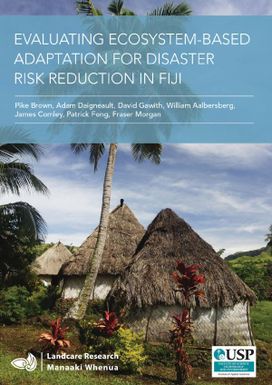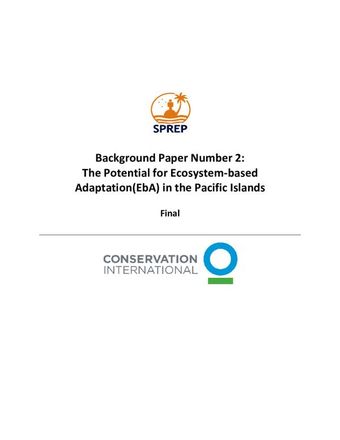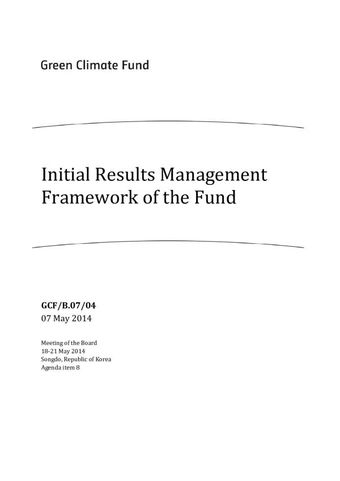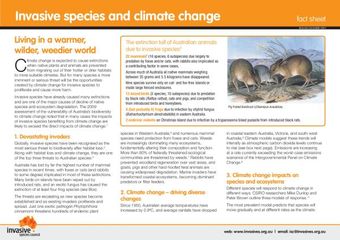Evaluating Ecosystem-Based Adaptation For Disaster Risk Reduction In Fiji
- Description:
- Natural disasters such as hurricanes, cyclones, and tropical depressions cause average annual direct losses of US$284 million in the Pacific. With a combined population of fewer than 10 million people, annual losses are the highest in the world on a per-capita basis. Extreme weather events such as heavy rainfall are closely linked to climate change, suggesting that Pacific Island nations face increasing risk of disasters such as flooding and landslides. Proactive management through infrastructure development, social solutions, and/or ecosystem-based adaptation can mitigate these risks. However, there are a paucity of data pertaining to the costs, effectiveness, and feasibility of most management options. In the wake of two major flood events and a cyclone occurring between January and December 2012, we conducted a state-of-the-science assessment of disaster risk reduction for flooding in the Ba and Penang River catchments in Viti Levu, Fiji to identify the most cost-effective management options for communities and households (Figure E1). The analysis accounted for the biophysical and socioeconomic impacts of flooding, the costs, benefits, and feasibility of management, and the potential impacts of climate change.
- Collections:
- Secretariat of the Pacific Regional Environment Programme (SPREP)
- Content partner:
- Secretariat of the Pacific Regional Environment Programme (SPREP)
- Availability:
- Not specified
-
Copyright status: All rights reservedFind out more about what you are able to do with this itemThis item is all rights reserved, with means you'll have to get permission from Secretariat of the Pacific Regional Environment Programme (SPREP) before using it. For more information, please see our use and reuse page.What can I do with this item?Non-infringing useNZ copyright law does not prevent every use of a copyright work, and this item may be hosted by an international institute or organisation. You should consider what you can and cannot do with a copyright work.No sharingYou may not copy and/or share this item with others without further permission. This includes posting it on your blog, using it in a presentation, or any other public use.No modifyingYou are not allowed to adapt or remix this item into any other works.No commercial useYou may not use this item commercially.
Related items
Welcome and warm Pasifik greetings
The information on this site has been gathered from our content partners.
The names, terms, and labels that we present on the site may contain images or voices of deceased persons and may also reflect the bias, norms, and perspective of the period of time in which they were created. We accept that these may not be appropriate today.
If you have any concerns or questions about an item, please contact us.



